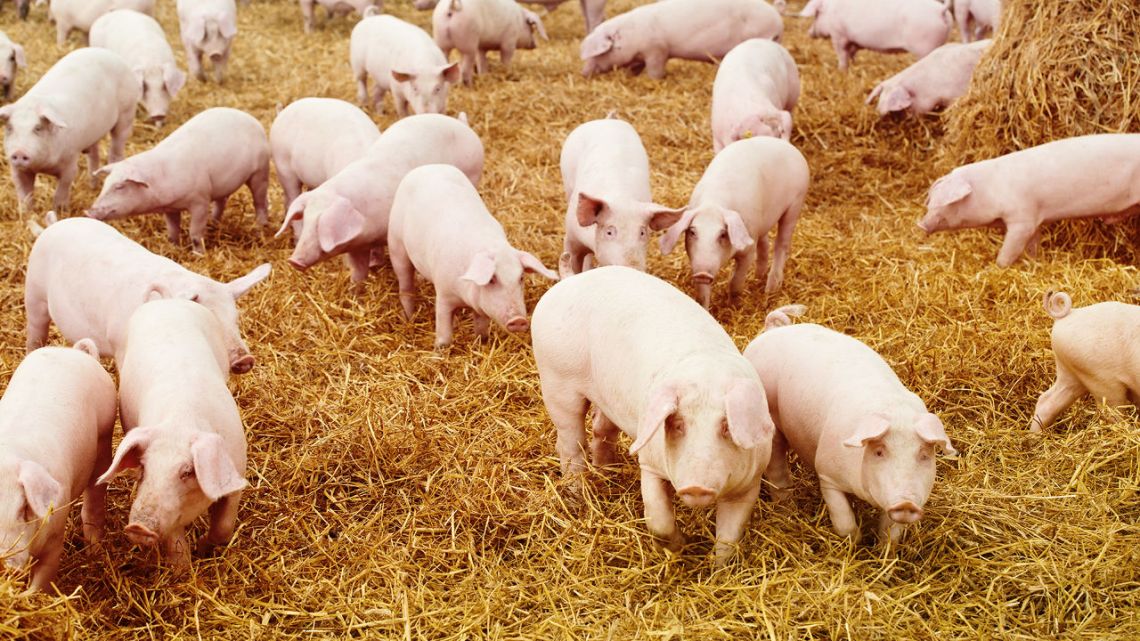African Swine Fever project launched in the Philippines

On 20 July 2022, the US and the Philippines launched a new project aimed at strengthening local veterinary services to produce safe pork and pork products.
The project is funded by the US Department of Agriculture (USDA) Foreign Agricultural Service (FAS) Emerging Markets Program and implemented by the University of Minnesota. Through this project, the Philippine Department of Agriculture (DA) technical officials will receive a 2-week training in the US, equipping them with relevant knowledge to conduct workshops across the Philippines to help combat the spread of African Swine Fever (ASF).
Several leaders from both the US and the Philippine pig sectors witnessed the launch of the project. In his remarks, FAS Administrator Daniel Whitley noted that the project builds on the work of the US Department of Defense’s Defense Threat Reduction Agency and USDA-Animal and Plant Health Inspection Service, on combatting transboundary animal diseases.
“Since our initial conversation with the Philippine government a few years ago, the opportunity to better understand ASF and the benefits for both countries were always clear,” said National Pork Producers Council (NPPC) president, Terry Wolters, who was the author of the project proposal.
The president of the Pork Producers Federation of the Philippines, Rolando Tambago, welcomed the project as a “timely initiative that will enhance the industry’s competence on disease control”, while National Federation of Hog Farmers, Inc. president, Chester Tan, remarked that the knowledge gained from the project “can be cascaded to our Asian neighbours to better equip farmers in their fight against ASF”.
Through the Cochran Fellowship Program, the USDA has trained many local pig producers since 2017 in improving their food safety through proper cold chain and handling. The USDA also funds the Building Safe Agricultural Food Enterprises (B-SAFE) project, which assists Philippine pig farmers in their repopulation efforts by strengthening biosecurity measures at the farm level.
Agriculture Secretary William D. Dar visited the National Swine and Poultry Research and Development Centre (NSPRDC) in Tiaong, Quezon on 24 June to explore its current endeavours, plans, and challenges in advancing the native pig and poultry industries in the Philippines.
The NSPRDC is one of the research and development centres under the Department of Agriculture’s Bureau of Animal Industry (DA-BAI), which is mandated to conserve and improve pig and poultry genetic resources through research into new technologies. It focuses on enterprise development, and the improvement of livelihoods through increasing farmers’ income, particularly the smallholder farmers.
To strengthen the Philippines’ native pig industry, the NSPRDC aims to:
- Purify, stabilize, breed, market, and commercialize native pig breeds
- Propagate multiplier farms for the distribution of native pigs
- Promote relevance of various NSPRDC research to the native animal industry.
To ensure a safe, sufficient, and competitive Philippine livestock industry, the DA officials are in discussions for possible restructuring of the DA’s livestock support agencies through Senator Cynthia Villar’s proposed bill, the ‘Philippine Livestock Industry Development Act’, which was filed in July 2019. If enacted, the Philippine Livestock Agency (PLA) shall be formed by merging the Bureau of Animal Industry (BAI), the Philippine Carabao Centre (PCC), the National Dairy Authority (NDA), and the National Meat Inspection Service (NMIS).
Read also
Wheat in Southern Brazil Impacted by Dry Weather and Frosts
Oilseed Industry. Leaders and Strategies in the Times of a Great Change
Black Sea & Danube Region: Oilseed and Vegoil Markets Within Ongoing Transfor...
Serbia. The drought will cause extremely high losses for farmers this year
2023/24 Safrinha Corn in Brazil 91% Harvested
Write to us
Our manager will contact you soon



